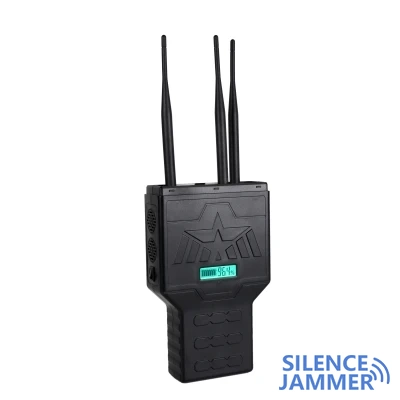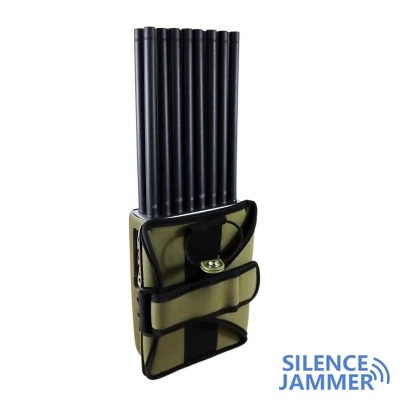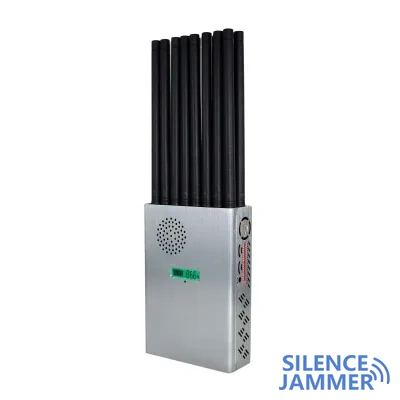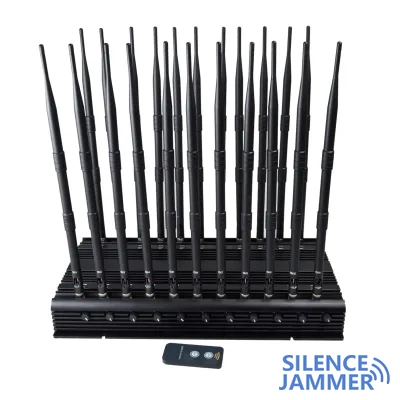On the morning of May 5, 2024, residents and businesses in 500 homes and 50 shops in Delhi's Janakpuri C4 and C5 blocks faced serious communication problems. The root of all this lies in India's largest prison, Tihar Prison. In order to prevent prisoners from illegally using mobile phones, 15 powerful phone signal jammers were installed in the prison, and the radiation range of these devices unexpectedly affected the surrounding areas within several kilometers, resulting in almost complete interruption of communication services for local residents and businesses.
Tihar Prison: Strict defense against illegal communications
Tihar Prison holds about 20,000 prisoners, including several notorious gangsters and criminals. In order to strengthen security precautions inside the prison and prevent prisoners from contacting the outside world through mobile phones, the prison authorities installed 15 phone jammers inside. The function of these devices is to block the spread of mobile phone signals, thus making it impossible for prisoners to use their phones. However, the problem is that the radiation range of the cellular signal jammers is not precisely controlled, resulting in a complete loss of mobile signals in the adjacent areas.

A series of problems caused by communication interruption
- Residents living in Janakpuri C4 and C5 blocks near Tihar Jail, especially Vijay Batra, are deeply troubled. Batra, 55, recalls that several times a week, in order to complete simple mobile transactions, he had to leave his home and ride a motorcycle for about 500 meters to successfully receive a one-time password (OTP). Due to the lack of phone signal, transactions could not be completed through mobile phones, and Wi-Fi signals and SMS services were almost completely cut off. Batra lives in C5A block with his wife and mother-in-law. It has become increasingly difficult for residents in the area to connect with the outside world.
- The communication problems in Janakpuri C4 and C5 blocks are not limited to the private lives of residents. The business operations of businesses have also been greatly affected. Pawan Singhal and his wife moved to C5B block last year, but they soon realized the trouble of no signal coverage - not only could they not use their mobile phones to make calls, but even Wi-Fi calls often failed. Their stores face frequent logistics and delivery problems, with deliverymen often getting lost or unable to get in touch with merchants. Singhal lamented: "Sometimes even GPS fails, orders cannot be delivered on time, and business operations become difficult."
- More seriously, the local real estate market has also been affected by this problem. Due to network signal problems, house prices in C4 and C5 blocks have dropped sharply, and potential buyers have abandoned properties in these areas. Real estate agent Pawas Jain said that although the houses look intact, many customers no longer consider buying such properties after experiencing the trouble of no signal.
The root cause of communication interruption and the response of prison management
In fact, the mobile phone jammer in Tihar Prison is not a single problem. According to Sanjay Beniwal, director of Delhi Prisons, not only 15 cellphone jammers have been installed in the prison, but also three Harmony Call Blocking System (T-HCBS) towers have been added. The purpose of these facilities is to further block the illegal communications of prisoners. However, over time, prisoners have mastered the weaknesses of the cellular jammer devices, discovered the signal blind spots inside the prison, and used these loopholes to continue using their mobile phones. Police and prison authorities said they have seized a large number of mobile phones hidden in prisoners' bodies in recent years, and some devices have even been smuggled into prisons through special channels.

A Delhi prison official revealed that in 2023, the police seized at least 350 mobile phones in Tihar, Mandoli and Rohini prisons, compared with about 200 in 2022. Although prisons have stepped up their crackdown on illegal communications, many illegal communications are still carried out due to the coverage and effectiveness of jammers.
Seeking solutions
Faced with the continued distress of communication problems, many residents have begun to seek other alternatives. Vijay Batra installed a mobile signal booster tower, which has improved the communication problems in the C5A block to a certain extent, but he still worries that the problem may worsen again as more jammers are installed. Residents and businessmen who are reluctant to leave have to endure frequent communication interruptions and pay the price of losing customers and business opportunities.

Rohit Sharma, whose fitness supplement shop is also stagnant due to communication problems, revealed: "Our shop here has been empty, customers cannot contact me, and cannot complete online payments." He has decided to sell his shop and find a more suitable business location.
Although the network jammer in Tihar Prison is designed to prevent prisoners from illegally using mobile phones, its radiation range and interference effect inadvertently affect the lives of surrounding residents and businesses. As communication problems continue to worsen, residents in the Janakpuri area face life and economic difficulties caused by signal paralysis. Although residents and merchants have sought solutions in various ways, the impact of jammers cannot be eliminated. This is not only a technical problem, but also a complex issue involving public safety and the quality of life of residents.




